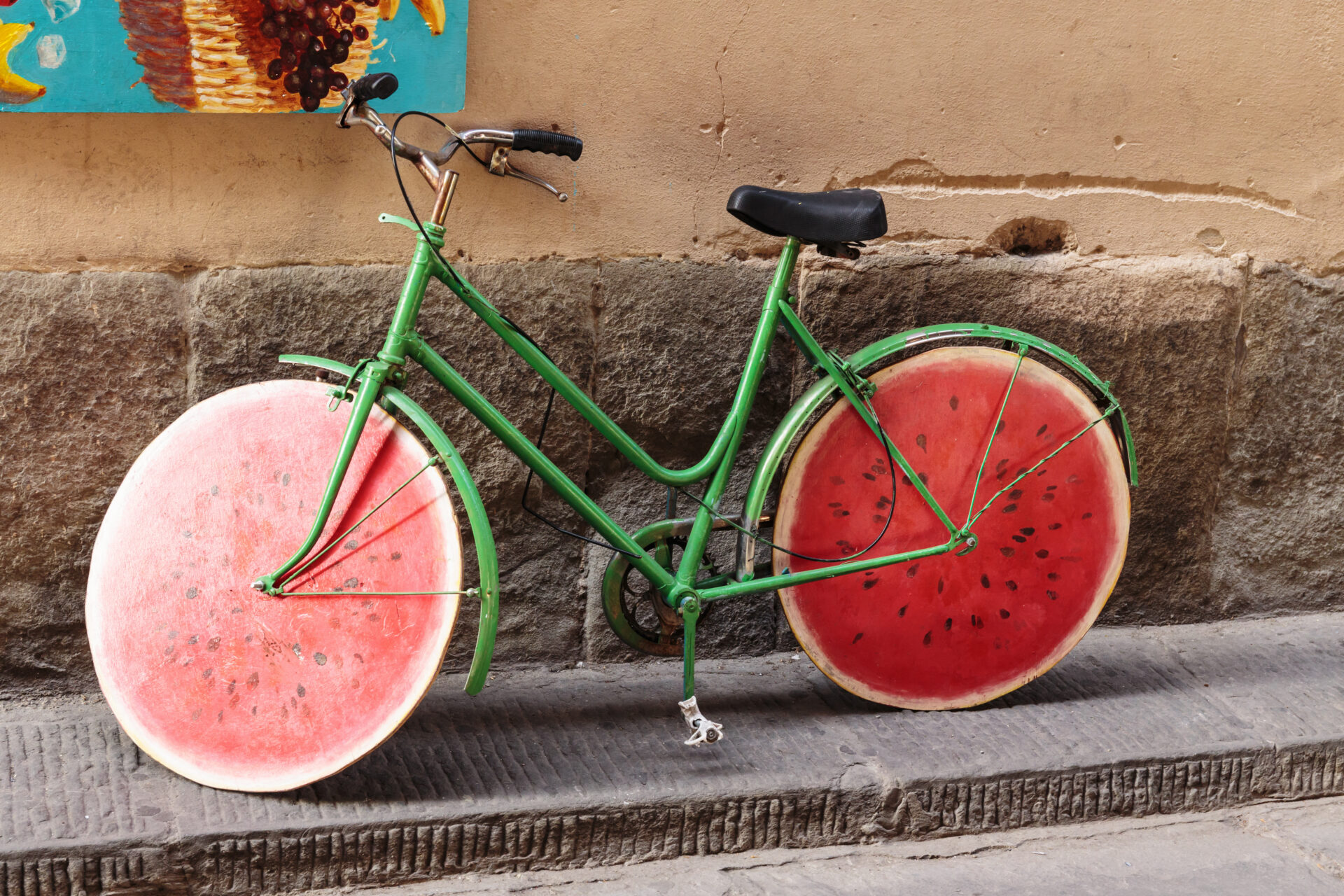Posts by Miriam Vinton
Rethinking Resolutions
I’m on the fence about making New Year’s resolutions. On one hand, it seems like a good idea to set a new goal and a new year seems like the time for a fresh start; on the other hand, if I don’t follow through and make these things happen, I have come up short. I came across a blog from Berkley’s Greater Good website and it has me rethinking resolutions.
Dr. Christine Carter says that people often pick things that are too hard to complete so they set themselves up to fail. She suggests picking just one thing, breaking it down into increments and taking small steps toward creating a new habit.
Here are three of her favorites resolutions:
1. Spend more time with friends. Study after study shows that we tend to be happier when we feel connected to our nearest and dearest, when we feel like we are a part of a group or a clan. Even introverts don’t like to feel lonely; this may seem like the science of the blazingly obvious, but it bears repeating. Do you frequently feel isolated or lonely? Make a resolution to routinely reach out to others.
Not sure how, or feel too busy? Join or start a group that meets regularly—maybe on the first Monday of the month, or every Friday at lunch. Some of my closest friends have come from book clubs, church groups, and standing family dinners. When we routinize our friendships, we remove the hassle of scheduling, and increase the odds that we’ll actually spend time with people we love or want to get to know better.
2. Everyday, find a way to give something to somebody. My favorite happiness booster is to give thanks: to a higher power for the abundance that surrounds me; to my dad for taking my kids to ice cream; to my main squeeze for all the ways he supports my work.
Equally good is to give something else—a helping hand, a compliment, a much needed $5 bill—even if it is just a tiny act of kindness. In a world that is more focused on getting than giving, a New Year’s resolution to do one kind thing each day, or to give thanks in one small way, is a pretty radical act. When we make giving a habit, we make gratitude and kindness central themes in our lives. In so doing, we transform our lives with joy.
3. Get more sleep and exercise. I know, that’s not one resolution, it’s two, but the science around these physical happiness boosters is pretty compelling. Studies are clear: You’ll be less stressed, less sick, and less grouchy in the New Year if you get more shut-eye. Try increasing your sleep 10 minutes a night for a week, and then another 10 the next week, and so on until you are regularly getting your eight hours.
If you aren’t active, you want to lose a few pounds, or you frequently feel a bit depressed, try adding more activity into your life in a way that feels fun or luxurious. I like to hike with my friend Jen and her ecstatically joyful dog Lou. It takes a couple hours out of my day (that’s the luxurious part, since I’m so strapped for time) but it leaves me feeling as bright and happy as Lou. On days when I don’t have time for a hike, I walk on a treadmill while watching Modern Family. This is luxurious and fun because I don’t watch TV at any other time.
I will add my own resolution to this list. I intend to laugh more. There is research that says that laughter can improve your immune system, reduce stress, and boost your mood. It just feels good. I plan to watch and read more things that are funny, be with people (and animals) that make me laugh, and look for the humorous perspective in daily life. Laughter is contagious and I look forward to seeing it spread to those around me. Have fun with your resolutions in 2016 and Happy New Year!
Miriam Vinton
Be Well For The Holidays 10 Ways To Reduce Your Stress
End-of-the-year projects, reports, final exams, holiday pressures and expectations. On top of all of this we often become sick. How does stress impact our health?
“The increased cortisol level induces likelihood of infection during the holidays,” said Dr. Robert Hasty, assistant professor of internal medicine at Nova Southeastern University’s medical school.
Cortisol is a natural hormone that responds to stress, lowering immunity and making you more susceptible to infections.”
How can you keep your immune system strong? One way is by managing the stress in your life. Best selling author and health and wellness expert Deborah King gives 10 Suggestions for managing stress during the holidays.
1. You can’t do everything (and you shouldn’t have to).
Consumer culture is designed to make you feel like you’ve failed if your holiday isn’t perfectly choreographed and ready for a Martha Stewart magazine spread, but you are just one person! This doesn’t mean you should throw in the towel, but rather understand that you may not be able to plan the company holiday party, bake pumpkin pies for the whole neighborhood, and hand-make all your gifts. Delegate where you can, take a few shortcuts, and generally give yourself a break this year.
2. Manage expectations.
Nothing will be perfect, so don’t expect it to be. Trying to meet unrealistic expectations is a recipe for disappointment, so don’t let the little snafus get you down. People might be late, drinks might spill, and gifts may not arrive on time, but the unpredictability is what makes it fun. Try to set manageable goals you know you can accomplish, but also allow yourself to be flexible and spontaneous.
3. Take time to recharge.
You need some alone time each day during this busy season to decompress. Go for a walk, play with a pet, take a bath, make a snow angel, meditate, whatever calms your mind, body, and soul. Even if it’s just five minutes, take a break from the hustle and bustle to recharge.
4. Reevaluate your holiday routines.
Is there a holiday tradition that you dread each year? If you find yourself wondering why you are still doing an activity that doesn’t bring you joy or fulfillment, it may be time to let it go. With a jam-packed season, why waste time on something that is no longer rewarding?
5. Meditate.
Meditation is always an important part of a healthy lifestyle, but during this time of year, meditationbecomes even more vital to your sanity. My recommendation is twenty minutes twice a day and this is the one time of year you don’t want to skip it. Trust me, you will feel calmer and happier.
6. Get enough sleep.
Sleep is underrated most of the year, but now, when sickness spreads easily and stress is high, sleep is essential medicine. Seven to eight or even nine hours a night will keep your immune system strong, your focus sharp, and your mood more stable. Getting enough sleep will also help you combat sugar and carb cravings so you can avoid overeating.
7. Give from the heart.
The true spirit of the season is about giving rather than receiving, and true giving comes from the heart. Anyone can plop down a credit card, but thoughtful, heart-felt gifts are always more appreciated and memorable. Consider giving to a children’s charity or hospital, or give your time and volunteer. Knowing you are helping others and making their holidays brighter is more rewarding than anything you could possibly get.
8. Give the gift of forgiveness.
This is the season for friendship and families, but that doesn’t mean hurt feelings or resentments suddenly disappear. Holding grudges hurts you more than the other person, so for both your sakes, give the gift of forgiveness this year.
9. Practice kindness.
Being kind to others isn’t just for the holidays, but this is a time to focus on radiating that kindness far and wide. Give up your perfect parking place at the mall, help someone carry their packages across the store, and be sure to say thank you to the clerks, wait staff, and flight attendants who help you out this season. A smile and kind words are always in season.
10. Get in the spirit.
The spirit of the season is about light and spreading that light to others. So take some time to think about what this holiday means to you on a deeper, spiritual level. Keeping your larger purpose in mind will help you focus on what’s really important to you and allow you to release everything else.
Deborah goes on to suggest that “The holidays are what you make of them. Have fun, let go of guilt and obligation, keep your sense of humor, and be grateful that you have been given the gift of another year on this planet to experience laughter, light, and love.”
Miriam Vinton
In Search of Gratitude
When you are grieving, when you have pain, when your life is not going the way you had hoped or thought that it would it can be hard to be thankful. That is the time when gratitude can help the most. Yes being grateful has positive health benefits. According to a November 2011 Harvard Health Newsletter gratitude is strongly and consistently associated with greater happiness. Gratitude helps people feel more positive emotions, relish good experiences, improve their health, deal with adversity, and build strong relationships. They go on to give ideas for cultivating gratitude on a daily basis. Write a thank-you note. You can make yourself happier and nurture your relationship with another person by writing a thank-you letter expressing your enjoyment and appreciation of that person’s impact on your life. Send it, or better yet, deliver and read it in person if possible. Make a habit of sending at least one gratitude letter a month. Once in a while, write one to yourself.
Thank someone mentally. No time to write? It may help just to think about someone who has done something nice for you and mentally thank the individual.
Keep a gratitude journal. Make it a habit to write down or share with loved ones your thoughts about the gifts you’ve received each day.
Count your blessings. Pick a time every week to sit down and write about your blessings — reflecting on what went right or what you are grateful for. Sometimes it helps to pick a number — such as three to five things — that you will identify each week. As you write, be specific and think about the sensations you felt when something good happened to you.
Pray. People who are religious can use prayer to cultivate gratitude.
Meditate. Mindfulness meditation involves focusing on the present moment without judgment. Although people often focus on a word or phrase (such as “peace”), it is also possible to focus on what you’re grateful for (the warmth of the sun, a pleasant sound, etc.).
I would also add to this list volunteering. Helping others can be a great way to not only distract us from our own struggles but to help us see our lives from a different perspective by helping those less fortunate.
Miriam Vinton
One-Minute Meditation for the WorkPlace
Often the workplace can be a stressful environment. One way to deal with daily stress is by taking a few minutes throughout the day to pause and relax. Harvard Health Publications suggest that techniques such as deep breathing, visualization, and meditation can evoke a state of rest and release. Doing them can slow your heartbeat, calm your breathing, and lower your blood pressure. So how can you fit this into an already busy schedule? By keeping the techniques brief and simple. Here are a couple of techniques from Harvard Health Publications.
Breathe in slowly. Pause for 3 counts. Breathe out. Pause for 3 counts. Continue to breathe deeply for 1 minute pausing for 3 counts after each breath in and out.
Count down slowly from 10 to 0. With each number take one complete breath, inhaling and exhaling. For example, breathe in deeply saying 10 to yourself. Breathe out slowly. On your next breath say nine and so on. If you feel light-headed count more slowly to space your breaths further apart.
The most common obstacle to meditation in the workplace is remembering to do it. One technique I use with my clients is to set a timer on their phones to go off periodically. For example a bell or a chime that sounds and reminds you to pause and breathe. Harvard Health Publications suggest a blue dot sticker. Place the dot on your computer, your day timer, or any place that would remind you to take one minute to improve your day.
10 Ways to Reduce Stress and Feel More Calm
Do you ever have difficulty relaxing? Sometimes in the middle of a stressful day it is hard thinking of ways to feel more peaceful. Here is a list of 10 ways that I have found helpful.
BREATHE Take time throughout your day to take 3 deep breaths.
PAUSE When you are feeling stressed pause and use your senses to ground you. Notice your surroundings, pay attention to what you see and hear. Take a deep breath. Light a candle. Some find lavender, jasmine, vanilla or orange candles to be soothing.
WATER Have a glass of water or make a cup of herbal tea. Some calming teas include Chamomile, Honey lavender, and Kava.
EXERCISE Take a walk, a run or do whatever kind of exercise is calming to you.
STRETCH Change the position you are in and stretch. There are many Yoga stretches that are helpful to work into your daily routine.
JOURNAL Write about what you are going through and then shred it or burn it. You might also write about ways you have successfully handled things in the past.
VISUALIZE Picture an ocean. As the waves come toward the shore take a slow breath in. As the waves recede let your breath out slowly. Repeat.
RELEASE Progressive Relaxation is a technique that involves tensing and releasing major muscle groups. Beginning with your toes tense them for 5 counts and then release for 30 counts. Next arch your feet tensing them for 5 seconds and then release for 30. Continue working your way up to your neck and your head focusing on each area of your body.
FOCUS Inhale slowly focusing in your mind on the word relax. Exhale slowly focusing on the word calm. Repeat.
GRATITUDE Find something that you are grateful for. Pick something new every time you do this. You might write it down describing it in detail. It could be as simple as gratitude for the sunshine on a beautiful day.
Miriam Vinton MA, LPC






